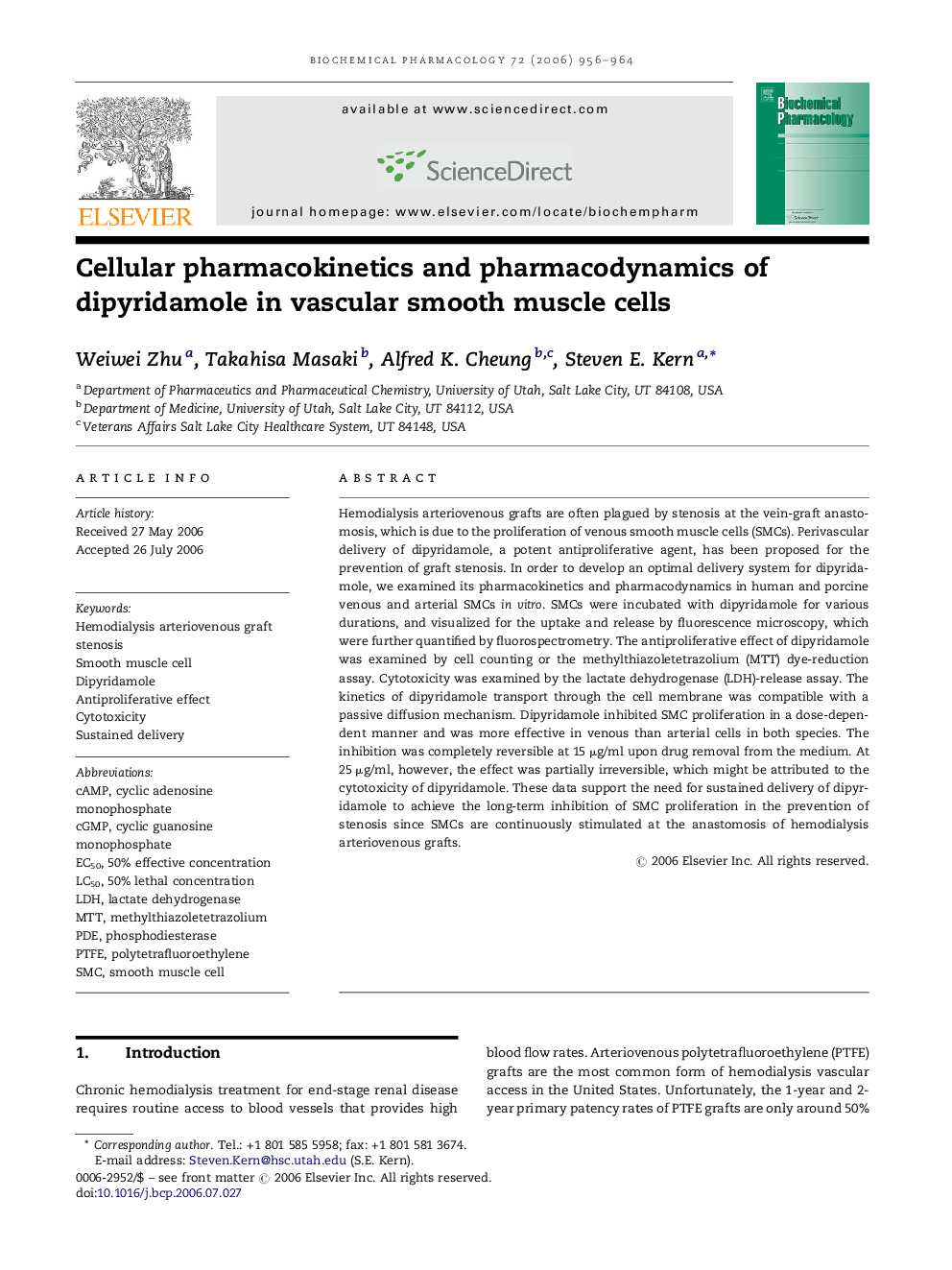| Article ID | Journal | Published Year | Pages | File Type |
|---|---|---|---|---|
| 2515401 | Biochemical Pharmacology | 2006 | 9 Pages |
Hemodialysis arteriovenous grafts are often plagued by stenosis at the vein-graft anastomosis, which is due to the proliferation of venous smooth muscle cells (SMCs). Perivascular delivery of dipyridamole, a potent antiproliferative agent, has been proposed for the prevention of graft stenosis. In order to develop an optimal delivery system for dipyridamole, we examined its pharmacokinetics and pharmacodynamics in human and porcine venous and arterial SMCs in vitro. SMCs were incubated with dipyridamole for various durations, and visualized for the uptake and release by fluorescence microscopy, which were further quantified by fluorospectrometry. The antiproliferative effect of dipyridamole was examined by cell counting or the methylthiazoletetrazolium (MTT) dye-reduction assay. Cytotoxicity was examined by the lactate dehydrogenase (LDH)-release assay. The kinetics of dipyridamole transport through the cell membrane was compatible with a passive diffusion mechanism. Dipyridamole inhibited SMC proliferation in a dose-dependent manner and was more effective in venous than arterial cells in both species. The inhibition was completely reversible at 15 μg/ml upon drug removal from the medium. At 25 μg/ml, however, the effect was partially irreversible, which might be attributed to the cytotoxicity of dipyridamole. These data support the need for sustained delivery of dipyridamole to achieve the long-term inhibition of SMC proliferation in the prevention of stenosis since SMCs are continuously stimulated at the anastomosis of hemodialysis arteriovenous grafts.
